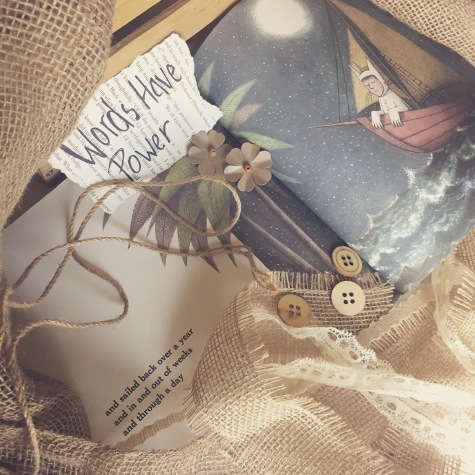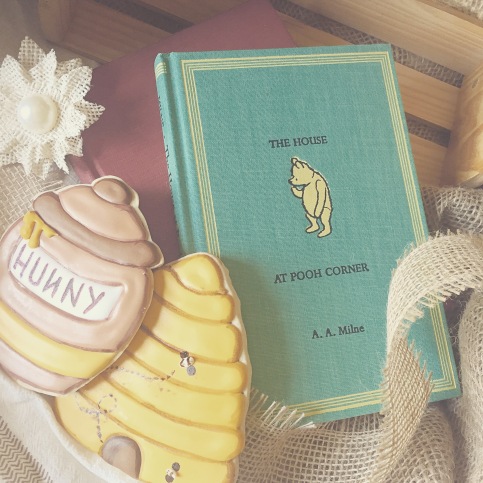
“You don’t have to burn books to destroy a culture.
Just get people to stop reading them.”
[Ray Bradbury]
September 24 through September 30 is Banned Books Week this year. For those who are not sure what Banned Books Week is, from the American Library Association it is summarized as the following:
“An annual event celebrating the freedom to read. Typically held during the last week of September, it highlights the value of free and open access to information. Banned Books Week brings together the entire book community — librarians, booksellers, publishers, journalists, teachers, and readers — in shared support of the freedom to seek and express ideas, even those some consider unorthodox or unpopular.”
If one would search for the list of the most popular books to be banned or challenged, the researcher would find that many of the books that are under fire are children’s books. Some examples of books that have been banned or censored in schools, libraries and bookstores around the US are Winnie the Pooh by A. A. Milne, Where the Wild Things Are by Maurice Sendak, The Wizard of Oz by L. Frank Baum, Where the Sidewalk Ends by Shel Silverstein, the Harry Potter Series by J. K. Rowling and even Hop on Pop by Dr. Seuss.

Let me start off this post with stating my opinion about guarding children from certain books:
I know that each family has its own traditions, religious, social, and political views. I never frown upon a family who chooses to direct their children away from books that may be detrimental to their child’s development such as scary books or books that are for a mature audience. But, I do not believe that means that the books that make one family uncomfortable should be then banned from all children.
One book series that I like to relate this idea to is the Harry Potter books. I grew up when J. K Rowling’s generation-altering books were just hitting bookshelves. I lived in a conservative Christian home and attended a private school. These books were a huge topic of discussion while I attended elementary school. Many families were upset when our school’s library stocked the bookshelves with such “witchcraft!” Of course, all the attention these books were getting made me rather interested in them. My parents were very hesitant to allow me to read these books, until some of my teachers started to endorse them. So my mum picked up The Sorcerer’s Stone, read the first chapter, and realized how wonderful Rowling’s words flowed out of each page and gave me permission to read these challenged books. –I felt like a rebel!–
Before your family decides to ban a book from your child’s reading list, take some time to read the book and see what all the fuss is about. For example, recently, Dr. Seuss’ book Hop on Pop is being challenged because some families think that the book encourages children to be mean to their fathers. Really? Yes! Some people take children’s books too seriously!
So, when books such as these are being challenged, what can you do to keep them from falling off bookshelves? The American Library Association has a great list of ideas for those who want to get involved! Click here to read their list. Or keep on reading to find out how to become a Speaker for the Books.
I’m sure many of you are familiar with Dr. Seuss’ book, The Lorax. (Also a book that has been challenged and banned in some areas.) Well, when I was coming up with a title for this post, the quote that kept coming to mind was from this book regarding our world’s taciturn timbers:
“I am the Lorax. I speak for the trees.
I speak for the trees for the trees have no tongues.”
Well, I am a reader. I speak for the books! I speak for the books for the books have no tongues… but they do have words and words have power! And as a Speaker for the Books, it is my duty to encourage others to open them! If one simply takes the time to peruse these locution-filled ledgers maybe, just maybe, challenges can be dropped.
“There are worse crimes than burning books one of them is not reading them.”
[Ray Bradbury]

Tips on How to Become a Speaker for the Books
-
Keep Me Posted!
One way to be a Speaker for the Books is to stay informed. Learn about what books are being challenged in your area. Sign up for Office of Intellectual Freedom’s newsletter to stay updated on books being challenged in schools and libraries. It only takes a minute to sign up! Click here for the link! Read the books listed and see what you think. -
Shout About It!
After you find out what books are being challenged, spread the word about them everywhere! Use the hashtag #bannedbooksweek, #wordshavepower and #bannedbooks on social media. -
Read Aloud.
Participate in a virtual read-aloud of a banned book! When a book is read aloud, it creates a voice for that book for all to hear. Children are much more interested in reading a book if they have first heard someone they know read it to them. In my classroom I always bring in a stack of books from the library to go along with our unit of study. Now, of course, the novelty of these books does grab some children’s interest, but some of these books will sit unused in my library book-crate unless I take the time to create an engaging read aloud experience. The same can be applied to banned books for all ages! (For tips on how to create a fun read aloud session, you can check out my post: The Art of Book Conversations)
Check out the youtube channel Banned Books Week for ideas and the rules, then record your own read aloud session of a banned or challenged book. -
Make Banned Books Feel Loved!
Support banned and challenged books by checking them out! After you learn what books are being banned and challenged, check these books out of the library, buy them from bookstores and make them feel loved. Read them! Show them off! Embrace them. If you think books don’t have feelings, you are mistaken!
I love to read, and I am proud to live in a country where I have the freedom to read what I like. I enjoy reading books that match my interests, but I also value reading books that differ from my philosophy. Books that present opinions that are different than the reader’s are a great way to test what one believes and to strengthen those stances.
As I stated earlier, I did grow up in a Christian home and am a Christian, and one Bible verse (also a book that has been banned) that really sticks with me when I think of Banned Books Week is Matthew 10:16:
“Be as wise as serpents and as harmless as doves.”
Even if a book is about something that you disagree with, that doesn’t mean you shouldn’t read it. Read books that challenge your faith, your philosophy, and your life choices. We should understand the world in which we inhabit.
“My mind is my weapon. My brother has his sword, King Robert has his warhammer, and I have my mind… and a mind needs books as a sword needs a whetstone,
if it is to keep its edge. That’s why I read so much.”
[Tyrion- George R.R. Martin]
Will you be participating in any events for Banned Books Week? Do you want to know more about this event? What books have you learned about that are being challenged in your area? Leave me a comment! I would love to talk to you about these books!
For more blog updates, follow my instagram @rose_on_reading and facebook page @roseonreading.

For now I will leave you with this quote from an author whose books have also been banned:
“The book to read is not the one that thinks for you but the one which makes you think.”
[Harper Lee]
A Speaker for the Books,
K. Rose
